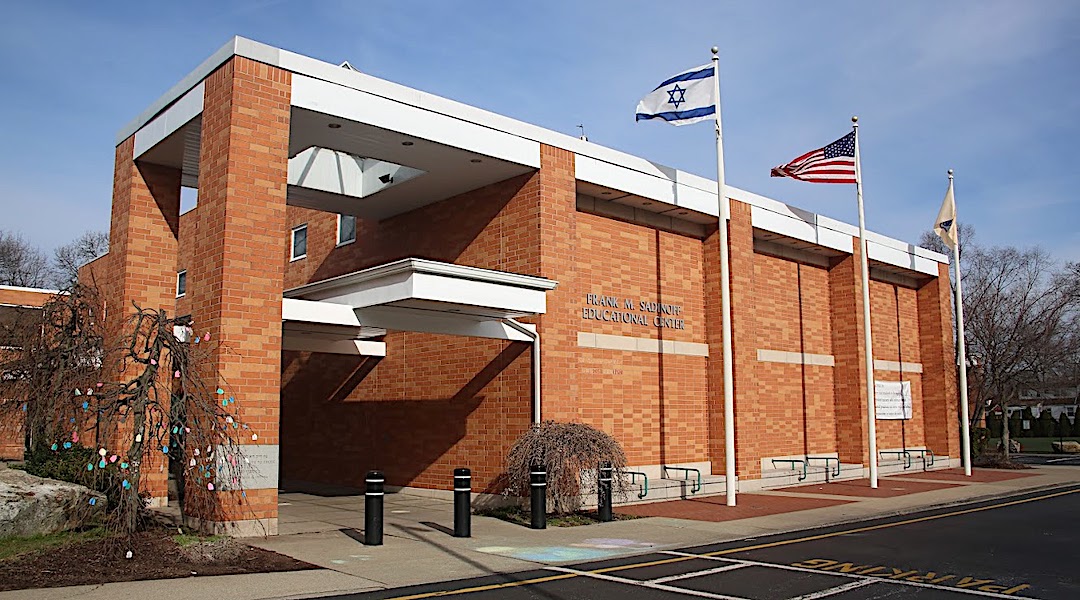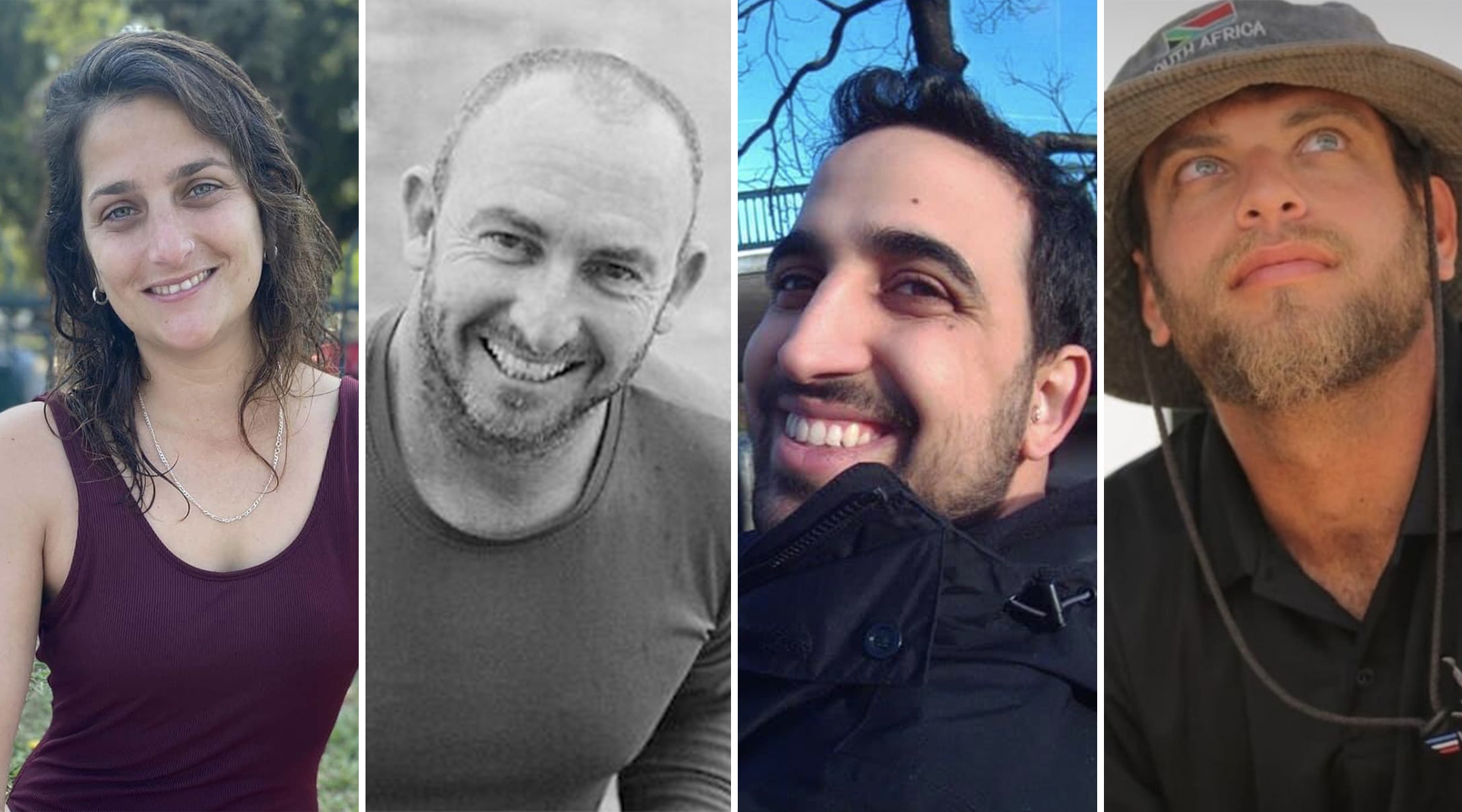(JTA) — On the Monday morning after the deadly Hamas attack near the Gaza border, administrators at the Solomon Schechter Day School of Bergen County in New Milford, New Jersey spoke to every grade and asked students how many of them had family in Israel.
Nearly every one of the school’s 420 students said they did, even beyond what Head of School Steve Freedman calls the “sizable minority” of children from Israeli families, either expats or the children of diplomats and others living temporarily in the United States, who attend the school.
And as the reports of the dead and missing rolled in from Israel, what came next was grim and perhaps inevitable: At least four families in the tight-knit community had a relative among the 1,300 Israelis killed in the surprise attack on Oct. 7 and the military clashes that followed. Three of those relatives were among the 260 people mowed down during a desert music festival near Kibbutz Reim. They included Sigal Levi, 31, a social worker who attended the festival to counsel troubled kids who might have been drawn to the party, and Ben Uri, 31, a cannabis entrepreneur and tech consultant who volunteered with a group that heals battlefield trauma through yoga.
Tal Eilon, 46, the cousin of a Schechter family, was a member of the security team at Kibbutz Kfar Aza who was shot and killed in a gun battle with Hamas members.
[For capsule portraits of those victims and others, click here.]
“It’s heavy,” said Freedman. “It’s very hard to do normal school because everyone’s so distracted. We understand that our children deserve normalcy, and to be able to learn and play and have fun, and because the faculty is amazing, we’re doing that.”

An Israeli flag flies outside the Solomon Schechter Day School of Bergen County in New Milford, New Jersey, March 30, 2022. (Courtesy SSDS Communication)
The northern New Jersey day school’s experience is hardly unusual among Jewish schools in North America, where the faculty and the kinds of families who send children to private Jewish schools often have strong personal and family connections to Israel. (This reporter’s children attended the Bergen Schechter over a decade ago.) A former teacher at Talmud Torah of St. Paul, Minnesota, Noi Maudi, 29, was killed at the music festival, as was Ben Mizrachi, 22, a graduate of Vancouver’s King David High School.
And the connections go beyond casualties. Omer Neutra, 21, who joined the Israeli army after graduating from The Schechter School of Long Island in Williston Park, New York, is missing and feared to be among those taken hostage by Hamas. Freedman said that at least 10 New Jersey Schechter alumni now living in Israel have been called up for the fighting. The father of a first-grader was returning to Israel to serve with his unit. One teacher’s aunt “by marriage” is missing and is presumed to be among the nearly 200 hostages taken by Hamas. The family learned about her capture on social media, Freedman said.
Among the grieving relatives at Schechter is Rona Lotan, who has a daughter in the seventh grade. Lotan, whose parents are Israeli but who was raised in the United States, remains close with her mother’s first cousin, Revital Herman, from the Palmachim kibbutz in central Israel. Herman’s son, Idan, 26, an engineering student, was killed along with his girlfriend Eden Naftali, 23, at the music festival.

Idan Herman, an engineering student killed during the Oct. 7, 2023 attack by Hamas on a music festival in southern Israel. (Courtesy Rona Lotan)
Lotan, 46, recalled a harrowing few hours on social media, where Herman’s family initially reported that their son was missing. The family was called to Soroka Medical Center in Beersheva to identify what authorities originally thought was Idan’s body. “It turned out to be a case of mistaken identity,” she said. Unsure whether to feel relieved or cheated of the closure they sought, the family did not have to wait long before learning that Idan was elsewhere in the hospital and had suffered fatal wounds.
Lotan is asking people to donate in Idan’s memory to Zahal Shalom of Bergen County, which brings wounded Israeli veterans to the United States on rehabilitation tours. The organization spoke to eighth-graders at Schechter this past May.
Freedman said the school is putting together parents’ groups for those who need help finding ways to talk about the war with their children. Each day since the Hamas attack, meanwhile, the school gathers for an assembly for support and morale-boosting.
“What do we tell our children? How do we allay their fears?” said Freedman. “That’s our job here and that’s been a journey.”
JTA has documented Jewish history in real-time for over a century. Keep our journalism strong by joining us in supporting independent, award-winning reporting.






